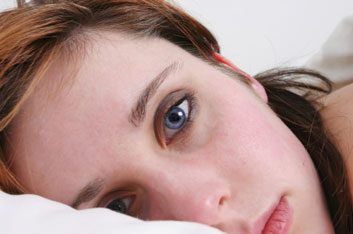Insomnia: A drug-free treatment that might actually help you sleep
As a longtime insomniac, I recognize that there is a shame associated with not being able to sleep. The message

As a longtime insomniac, I recognize that there is a shame associated with not being able to sleep. The message I so often receive from magazine articles, books and even healthcare professionals is that if I can’t drift off at the end of the day, well, I must not be maintaining good sleep hygiene (read: if you can’t sleep, you’re doing something wrong). I once had a doctor write down,"take a hot bath before bed" on a prescription pad when I came to him desperate for a solution. After several sleepless nights you can imagine how receptive I was to that recommendation. Oh, take a hot bath? Gee, why didn’t I think of that?
I’ve tried everything to be sleep hygienic’turning off the TV early in the evening, keeping my room dark and cool, going to bed at the same time every night and yes, even taking a hot bath before bed’and sometimes I still can’t drift off. And I know I’m not alone in this’an estimated 3.3 million Canadians have trouble staying or falling asleep. But if we reluctant night owls would rather not take medication to help us sleep, what else can we do?
According to this post in the New York Times, hope may come in the form of specialized therapy. In the article, Michael Thorpy and Shelby Freedman Harris of the Sleep-Wake Disorders Center at Montefiore Medical Center in New York say that some chronic insomniacs may benefit from cognitive behavioural therapy for insomnia, or CBT-I. The experts explain the therapy this way:
It is an evidence-based, nondrug, short-term (usually four to eight sessions) therapy based on the concept that chronic insomnia is maintained by a number of physical and behavioral factors. These factors then become the focus of treatment.
Essentially, the therapy aims to change your behavours around sleep and to give you individualized tools, such as relaxation exercises, sleep-wake schedules and methods to change thought patterns that may interfere with your sleep. According to Thropy and Freedman, CBT-I is "considered a first-line treatment for insomnia." Sounds great, but no doctor I’ve seen has ever recommended it. A quick search on Google doesn’t yield much information about how to find a CBT-I specialist in Canada, but the U.S.-based Society of Behavioral Sleep Medicine does include a few Canadians on its list of certified behavioural sleep medicine specialists. The Canadian Register of Health Service Providers in Psychology is another good place to start your search for help.
Do you have trouble sleeping? What helps you overcome insomnia?
Related:
‘ 6 ways to improve your sleep hygiene
‘ How to find the best therapist for you
‘ How sleep affects your health




